Milan may be considered Italy’s fashion capital, but a number of the most famous and historic designers to come out of Italy in the 20th century actually hail from Florence. Indeed, many trace the birth of Italy’s haute couture industry to a fashion show held at Florence’s Villa Torrigiani in 1951 by entrepeneur Giovanni Battista Giorgini; the collections made such an impression on international buyers that in just a few short years Italian fashion was considered equal to or better than the iconic French houses.
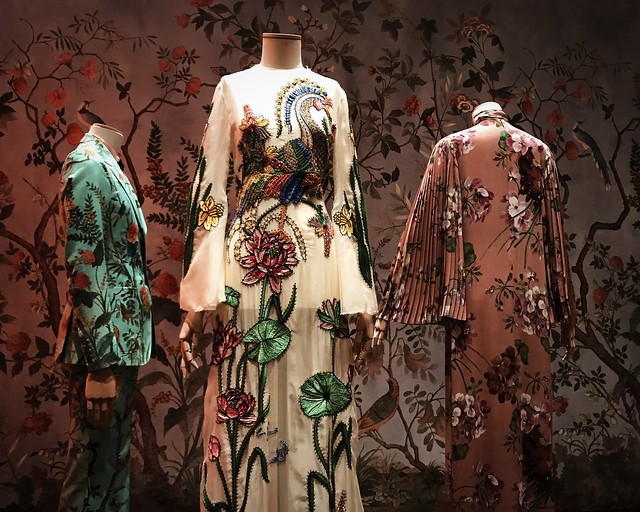
(Photo by CIUTravel via Flickr)
Florence has begun to highlight its design history with a number of fashion museums that have either opened or expanded recently, most notably Gucci Garden. If you are a fashion addict, or simply appreciate the rich history and exacting eye Florentine designers are known for, you can explore a number of museums dedicated to a specific designer or to the history of fashion and design during your visit to the city…in addition to browsing the elegant branded boutiques that dot the city center.
Gucci Garden
The Gucci brand was founded by Guccio Gucci in Florence in 1921. While working as a porter at London’s Savoy Hotel, Gucci designed his first collection of luggage and returned to his native Florence to craft fine leather bags and luggge from his workshop. These humble beginnings expanded to a full fashion label, today one of the most famous on earth. The Gucci Museum, opened in 2011 in the historic Palazzo della Mercanzia, underwent a glam renovation lead by head designer Alessandro Michele in 2017, and the cutting-edge, multi-functional space is now one of the trendiest spots in Florence. In addition to the museum’s permanent collection of iconic bags, accessories, suitcases, and clothing, the space is home to The Gucci Osteria led by three-Michelin-star chef Massimo Bottura, and the chic Gucci Garden concept store, a sophisticated gift shop on steroids.
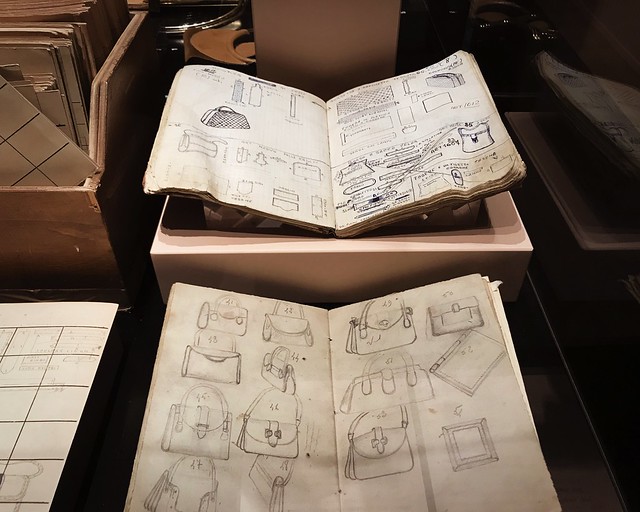
(Photo by CIUTravel via Flickr)
The Ferragamo Museum
Founder Salvatore Ferragamo was born in the southern region of Campania, but after spending more than a decade in the US, he returned to Florence in 1927 to design impeccable footwear for men and women. You can see the shoes that many consider more works of art than footwear at Florence’s Ferragamo Museum in Palazzo Spini Feroni, a 13th-century palace Ferragamo purchased in the 1930s to serve as the company headquarters and atelier. The museum was established in 1995 by the Ferragamo family to celebrate the designer’s artistic gift and craftman’s precision, and to highlight his role in the history of shoe design and international fashion. The collection includes thousands of shoes designed by the artist between 1920 and 1960, as well as period photographs and sketches, films and press coverage, and clothes and accessories from the 1950s to today.
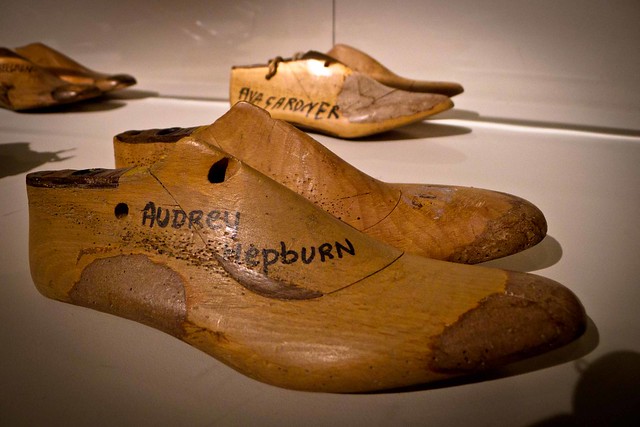
(Photo by Esther.Park via Flickr)
Pucci
The Pucci label was established by Marchese Emilio Pucci di Barsento, an aristocrat from one of Florence’s oldest noble families who became one of Italy’s most important sportswear designers by chance after his designs were noticed by fashion photographer Toni Frissel. The Pucci label is known for its rich colours, bright patterns, and fitted pants and dresses in stretch fabrics like jersey, and his beach wear, formal and sportswear, and airline uniforms heavily influenced the look of the 1950s and 60s. The Pucci Museum is located outside of Florence at Villa Granaiolo, the family’s historic country residence in Castelfiorentino, but you can take a peek at the newly renovated entrance and lobby of Florence’s Hotel Savoy, where Emilio Pucci Design added colorful verve to the stately historic building, with bold prints in their trademark jewel tones enlivening furniture, pillows, and carpets.
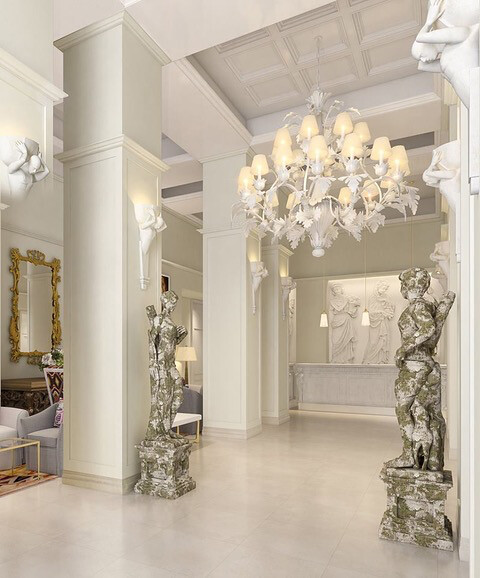
(Photo by CIUTravel via Flickr)
Roberto Capucci
Though his name is less well-known than others, Roberto Capucci is considered one of the founders of Italy’s modern fashion industry. Known for his eclectic style that blended a wide range of colors and fabrics, Capucci began his couture career in Rome, but his label took off after the Florentine fashion show of 1951. Today the Capucci Museum in Villa Bardini displays dozens of his creations and sketches, so visitors can admire his unique style and quality craftmanship that became the hallmarks of Florentine fashion houses.
The Fashion and Costume Museum
For those interested in exploring Italy’s long history of fashion and design, the newly renovated and reorganized Museo della Moda e del Costume (previously the Galleria del Costume) in Palazzo Pitti is a must. Here, a rotating display of selections from the museum archive of over 6,000 pieces of historic clothing and costumes dating as far back as the 16th century illustrates the importance of style in Italian culture and society over the centuries. Historical highlights include clothing once belonging to the Medicis and numerous royals, but the collection extends into the 20th century with creations by Valentino, Versace, Armani, and Missoni. The exhibits, which change regularly to protect the fragile pieces, include court attire and uniforms, haute couture and prêt-à-porter pieces, and theater and film costumes…all set against the backdrop of the sumptuous halls of the Pitti Palace.
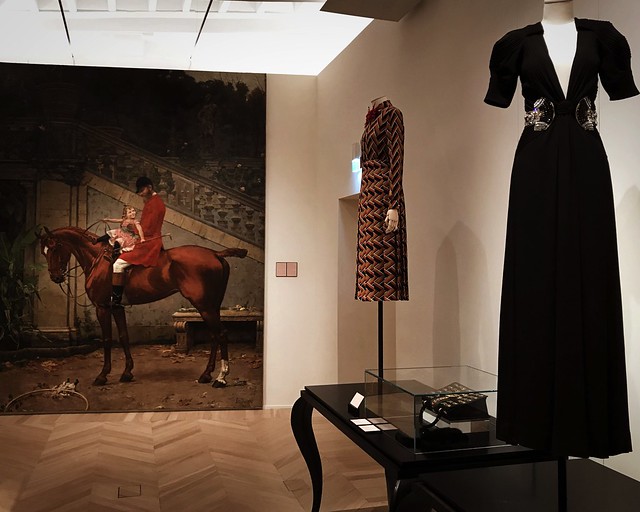
(Photo by CIUTravel via Flickr)
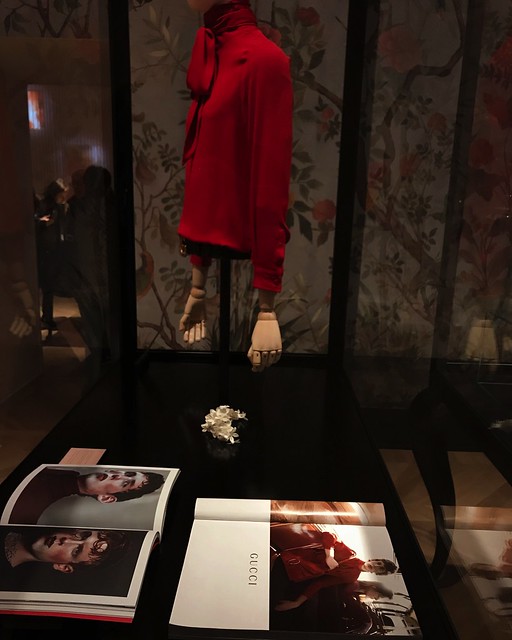
(Photo by CIUTravel via Flickr)
If your fashion addiction has been whetted by visiting these fabulous museums, you can easily satisfy your stylish cravings in Florence. Gucci Garden and the Ferragamo museums both have adjacent boutiques, and the historic center of the city is thick with chic branded shops selling creations by everyone from Roberto Cavalli (another famous Florentine fashion house) to northern invaders Prada and Armani. Remember, however, that you don’t have to go for the big labels to find fashion in Florence. The city is famous for its tiny artisan ateliers, fashioning shoes, bags, accessories, and clothing with less name recognition but all the elegance and craftsmanship Florence is famous for.


